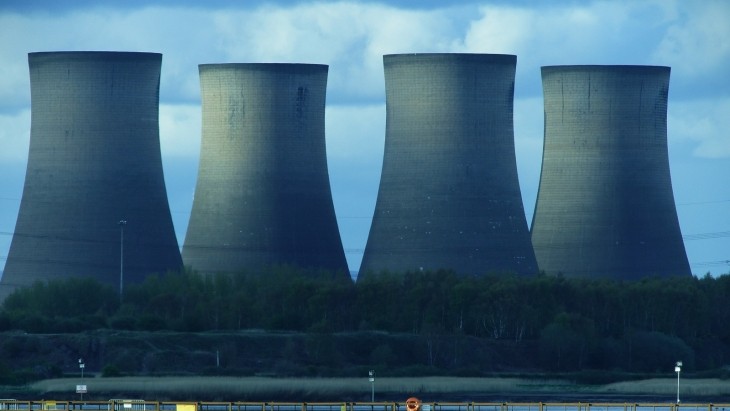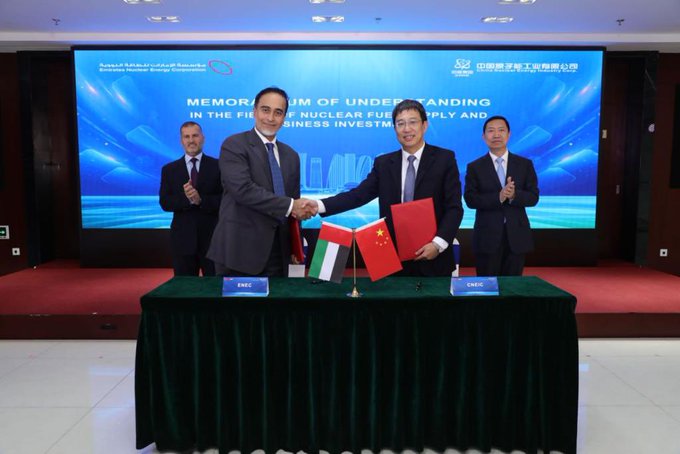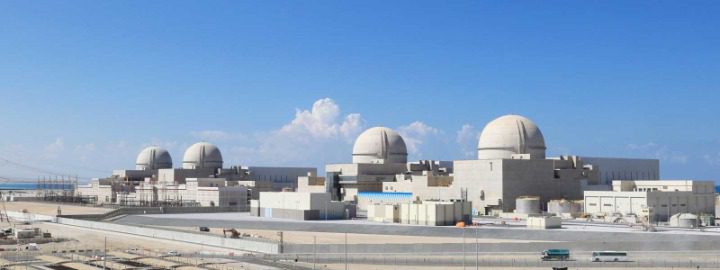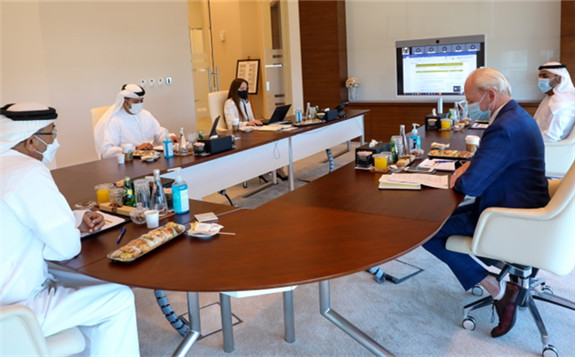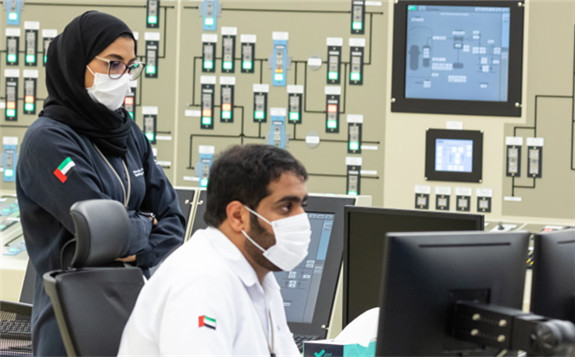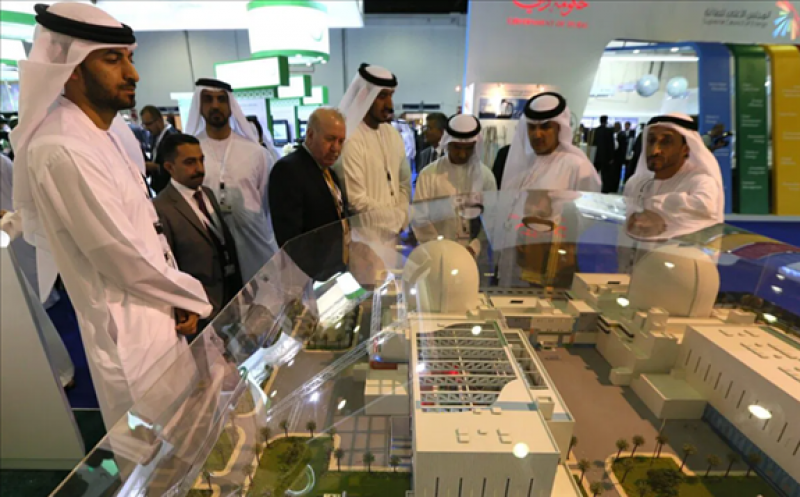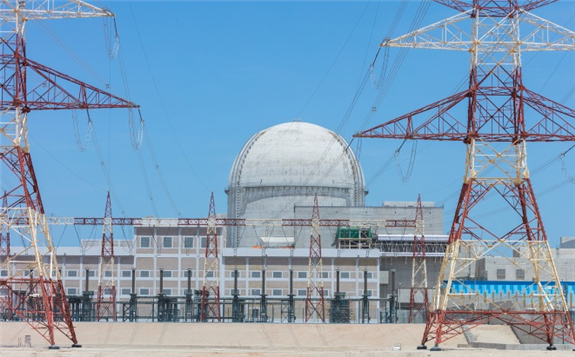Barakah unit 1 has reached 100% power and is now generating 1400 MW of electricity, the Emirates Nuclear Energy Corporation (ENEC) has announced today. The unit, which is operated by Nawah Energy Company (Nawah), is now the single largest power generator in the UAE and is due to begin commercial operations early next year.
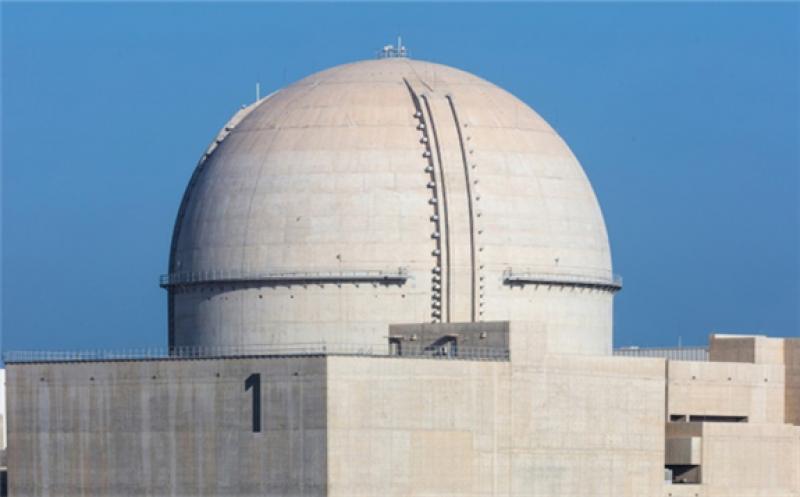 Barakah 1 (Image: ENEC)
Barakah 1 (Image: ENEC)
"Unit 1 marks a new era for the power sector and the future of the clean carbon economy of the nation, with the largest source of electricity now being generated without any emissions," ENEC CEO Mohamed Al Hammadi said.
The Korean-designed APR1400 reactor is one of four being built at the Barakah site in the Al Dhafra region of Abu Dhabi. Construction of unit 1 - the first nuclear reactor to be built in the UAE - began in 2012 and was completed in 2018. The reactor started up in July of this year, and was connected to the grid in August. The unit has been undergoing power ascension testing, under the oversight of the UAE's national nuclear regulator, the Federal Authority for Nuclear Regulation.
Nawah will now carry out a series of tests before the reactor is shut down in preparation for the so-called check outage, when the unit's systems will be examined, and any planned or corrective maintenance carried out, prior to the start of commercial operations.
"This is a key achievement for the UAE, as we safely work through the start-up process for unit 1 of the Barakah plant," Nawah CEO Ali Al Hammadi said. "Successfully reaching 100% of the rated power capacity in a safe and controlled manner, undertaken by our highly trained and certified nuclear operators, demonstrates our commitment to safe, secure and sustainable operations as we now advance towards our final maintenance activities and prepare for commercial operations in 2021."
The Barakah nuclear power plant is being built by a consortium led by the Korea Electric Power Corporation. Unit 2 was completed in July, and units 3 and 4 are now 93% and 87% complete, respectively. When fully operational, the four-unit plant will provide around 25% of the UAE's electricity and prevent the release of up to 21 million tonnes of carbon emissions annually, ENEC said.
